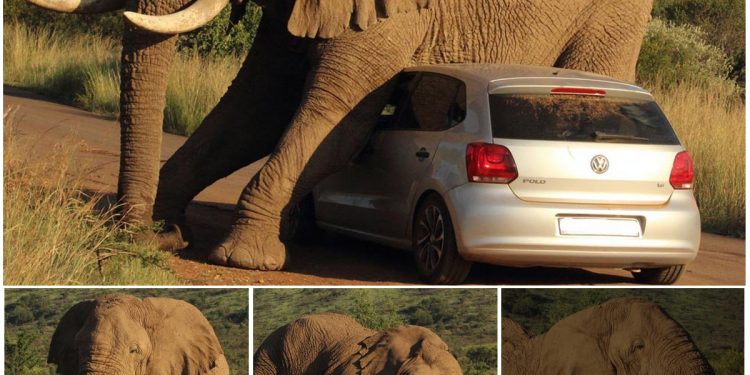
South Africa’s abundant wildlife draws tourists from around the world seeking the thrill of witnessing these magnificent creatures in their natural habitat. Sometimes, these encounters can be both awe-inspiring and unpredictable. In this article, we recount a remarkable wildlife experience in which tourists maintained their composure while a newly arrived elephant in South Africa displayed signs of agitation.
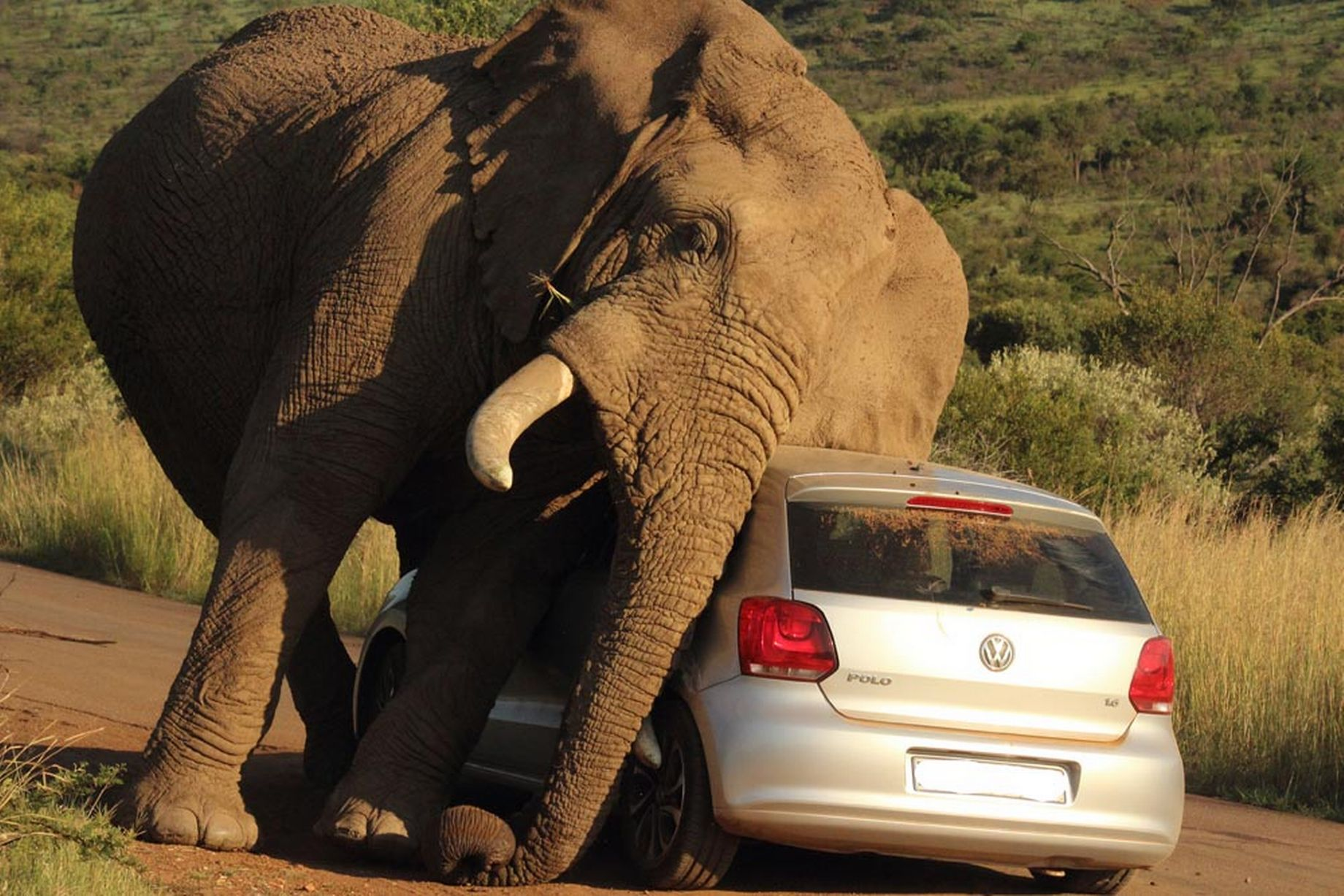
South Africa’s national parks and game reserves are renowned for their stunning landscapes and diverse wildlife. Tourists flock to these destinations, often embarking on safaris to witness animals up close in their natural environment.
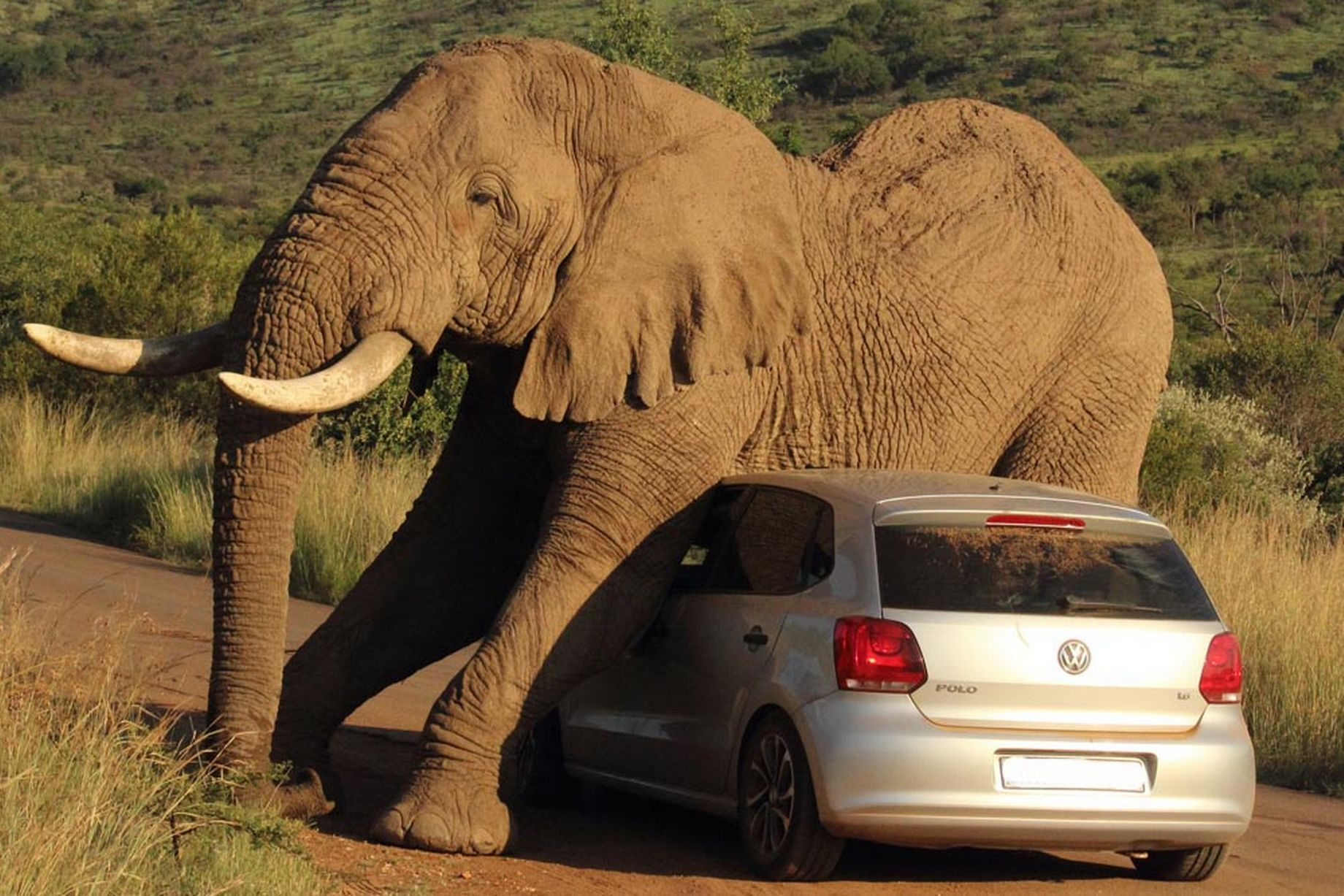
During a safari expedition in South Africa, a group of tourists had a unique and somewhat tense experience. As they watched a herd of elephants peacefully grazing, they noticed a newcomer among them—an elephant that had recently joined the group.
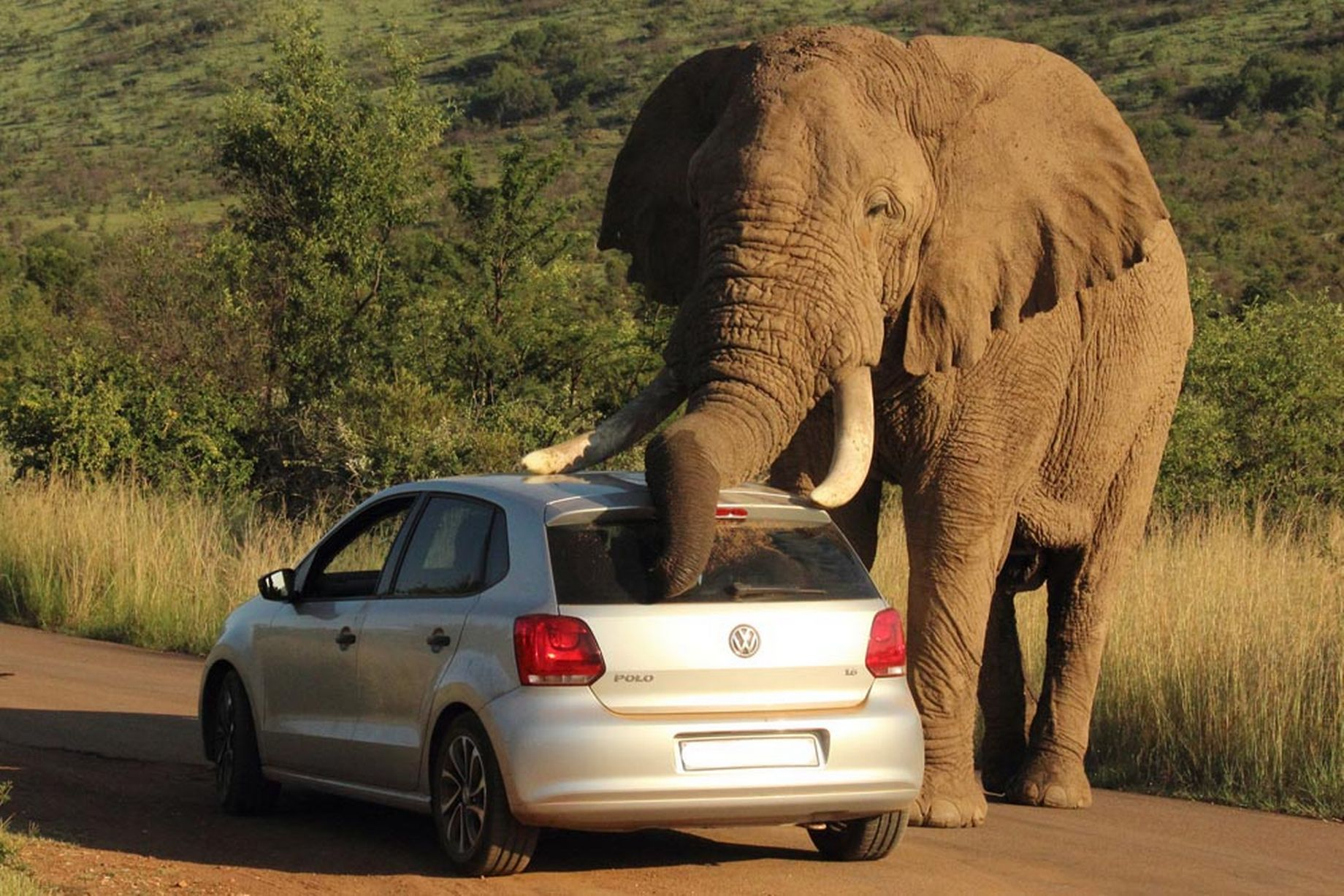
While the seasoned members of the herd went about their business calmly, the new elephant displayed signs of restlessness and agitation. Its body language suggested a certain level of unease, as it flapped its ears and trumpeted loudly.
Despite the newcomer’s apparent agitation, the tourists remained remarkably composed. Their experienced safari guide ensured that they followed safety protocols, which included maintaining a safe distance and not provoking or distressing the animals.
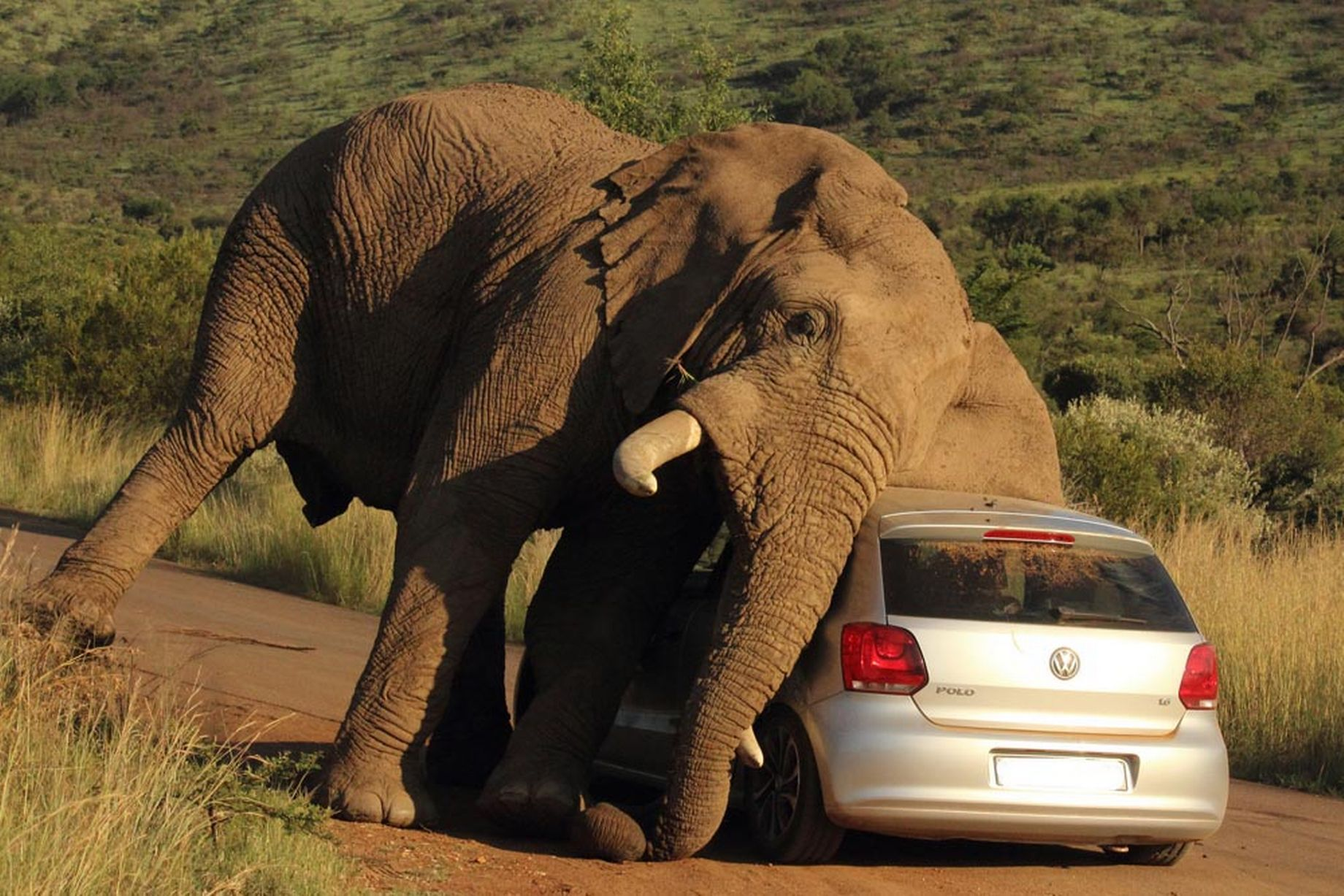
Elephants, known for their intelligence and complex social structures, can exhibit various behaviors based on their emotional state. The tourists, guided by their knowledgeable safari leader, understood that the new elephant might be adjusting to its surroundings or asserting its place within the herd.
The tourists’ ability to maintain composure and respect for the animals was commendable. It underscored the importance of responsible wildlife tourism, where humans observe and appreciate animals in their natural habitat without causing undue stress or harm.
This encounter with the agitated newcomer elephant served as a valuable lesson for the tourists. It highlighted the unpredictable nature of wildlife and the need for patience, respect, and responsible behavior when observing animals in the wild.
The tourists’ safari adventure in South Africa, marked by the presence of an agitated newcomer elephant, was a memorable and educational experience. It showcased the importance of maintaining composure and respecting wildlife during close encounters. As tourists continue to seek the wonder of nature, experiences like these remind us of the need for responsible and ethical wildlife tourism practices to protect and preserve the world’s magnificent creatures and their habitats.



